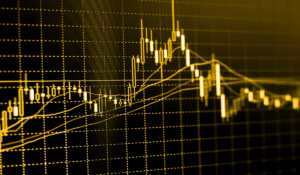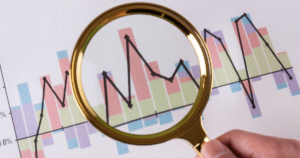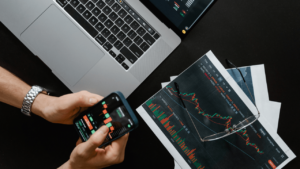Introduction
Forex trading, a global avenue for potential profit, has gained substantial traction in Malaysia. If you’re a Malaysian resident interested in venturing into the dynamic world of forex, understanding the legal landscape is paramount. In this comprehensive guide, we delve into the legal framework surrounding forex trading in Malaysia, dissect key regulations, explore regulatory bodies, and offer expert tips for secure and lawful trading practices.
Legal Landscape of Forex Trading in Malaysia
Forex trading in Malaysia operates within a structured legal framework designed to ensure transparency, investor safeguarding, and the prevention of illicit activities. These are the pivotal regulations every trader should be familiar with:
-
Exchange Control Act of 1953
The Exchange Control Act of 1953 places constraints on foreign exchange transactions for both residents and non-residents. While non-residents can invest in Malaysia for assets like property and securities, they’re also authorized to repatriate profits and returns in foreign currency.
-
Securities Commission Act of 1993
Empowering the Securities Commission Malaysia, the Securities Commission Act of 1993 mandates the licensing and regulation of securities-related businesses. The commission oversees exchanges, corporate bond issues, and supervises securities and futures contracts.
-
Money Changing Act of 1998
The Money Changing Act of 1998 governs the licensing and regulation of money-changing businesses. Those licensed under the Exchange Control Act of 1953 for foreign currency transactions are also deemed compliant with the Money-Changing Act.
Regulatory Authorities in Forex Trading
Several entities collaboratively enforce forex trading regulations in Malaysia. These institutions ensure adherence to rules and the protection of traders’ interests:
-
Bank Negara Malaysia
Established in 1959, Bank Negara Malaysia serves as the country’s central bank, regulating financial institutions, currency issuance, and monetary policy. Forex trading with licensed commercial banks, Islamic banks, and authorized investment banks is permitted.
-
Malaysian Investment Development Authority (MIDA)
Responsible for promoting investment, MIDA provides guidelines for money-changing businesses, including retail forex traders.
-
Securities Commission of Malaysia
The Securities Commission supervises and approves securities-related activities in the country, contributing to a secure trading environment.
-
Finance Accreditation Agency (FAA)
Working under Bank Negara Malaysia’s guidance, the FAA maintains educational standards and certifications within the financial services sector.
-
Shariah Advisory Council (SAC)
Operated under the purview of Bank Negara Malaysia, the SAC ensures adherence to Islamic law in Islamic banking and financial businesses.
Navigating Legal Forex Trading in Malaysia
For legal and secure forex trading in Malaysia, adhere to Bank Negara Malaysia’s guidelines:
- Choose Licensed Institutions: Ensure you trade with licensed commercial banks, Islamic banks, investment banks, or international Islamic banks to maintain compliance.
- Opt for an Islamic Account: For Shariah-compliant trading, select brokers like AvaTrade, eToro, FXTM, or markets.com, renowned for their well-regarded Islamic accounts.
- Conduct Due Diligence: Prior to investing, scrutinize various forex brokers. Verify their regulatory approval and track record to ensure trustworthiness.
- Stay Informed: Regularly update yourself on regulatory changes and industry trends to make informed trading choices and shield yourself from potential scams.
Recognizing and Avoiding Forex Scams
While forex trading is legal in Malaysia, vigilance is key to thwarting scams:
- Be Wary of Unrealistic Promises: Beware of promises of guaranteed profits or extravagant returns, as they often signal scams.
- Verify Company Details: Research a company’s credentials, headquarters, and regulatory compliance to ensure legitimacy.
- Prioritize Regulation: Only trade with brokers regulated by Bank Negara Malaysia or other recognized authorities to mitigate risks.
- Steer Clear of Unregulated Brokers: Avoid unregulated brokers and prioritize established, reputable options with a strong history of customer satisfaction.
- Exercise Caution with Cold-Calling Offers: Be cautious of unsolicited offers through calls or messages, as legitimate brokers seldom engage in such practices.
Conclusion
Legal forex trading in Malaysia is attainable by adhering to regulations and leveraging authorized institutions. By staying informed, partnering with licensed entities, and practicing due diligence, traders can navigate the forex landscape safely and within legal boundaries.
Key Takeaways
- Authorized financial institutions, including commercial banks and investment banks, enable legal forex trading in Malaysia.
- Regulations such as the Exchange Control Act of 1953 and the Securities Commission Act of 1993 govern forex trading practices.
- Regulatory authorities like Bank Negara Malaysia, MIDA, Securities Commission, FAA, and SAC contribute to a secure forex trading environment.
- Legal forex trading involves partnering with licensed entities, staying informed, and conducting due diligence.
- Recognize and avoid scams by being cautious of unrealistic claims, verifying company details, and only trading with regulated brokers.








